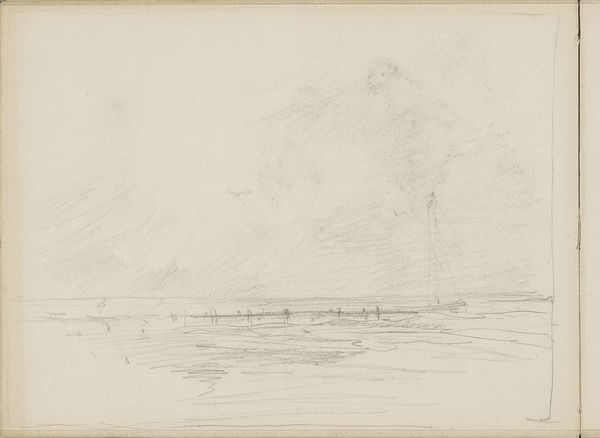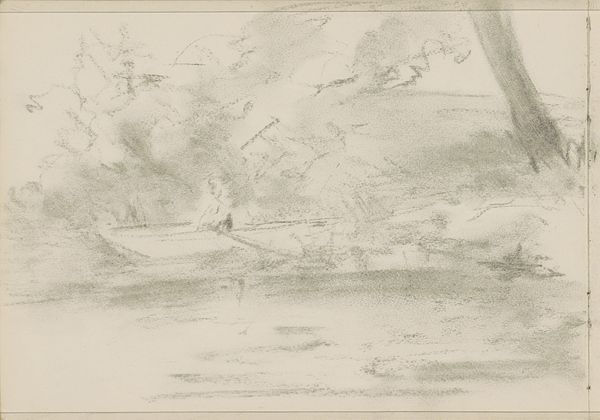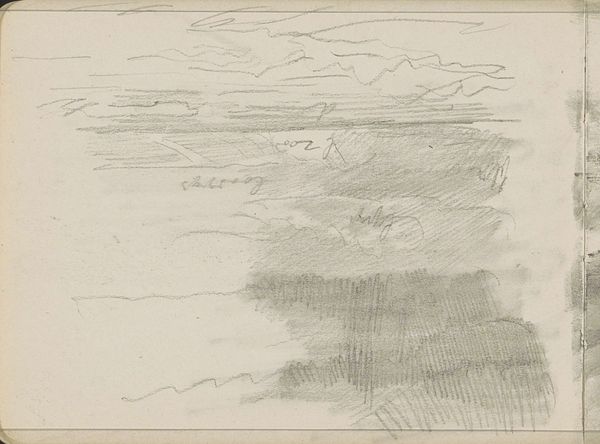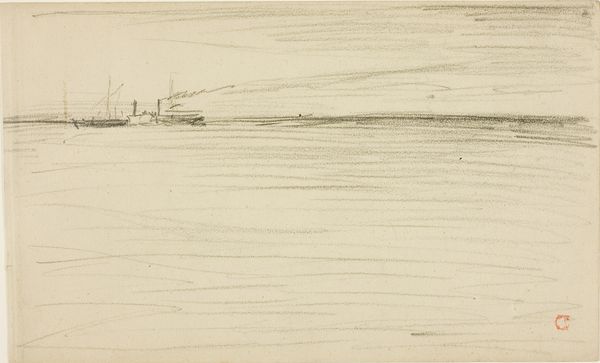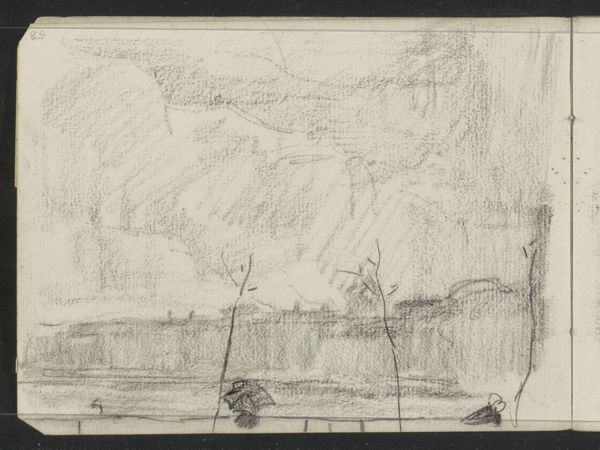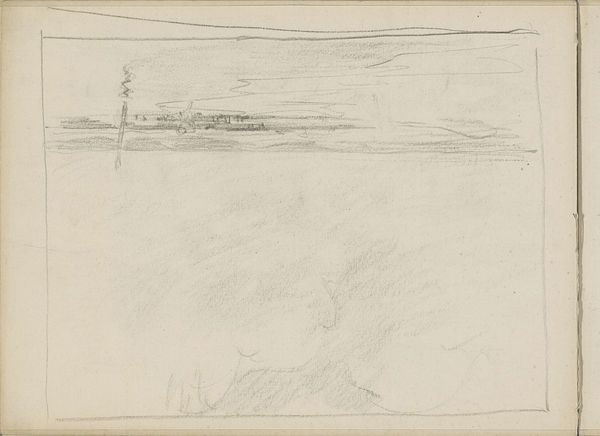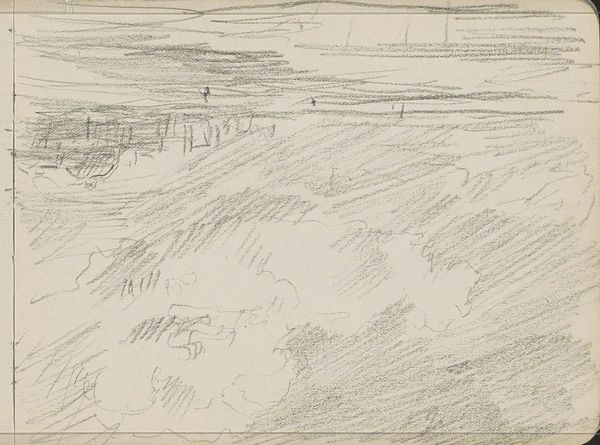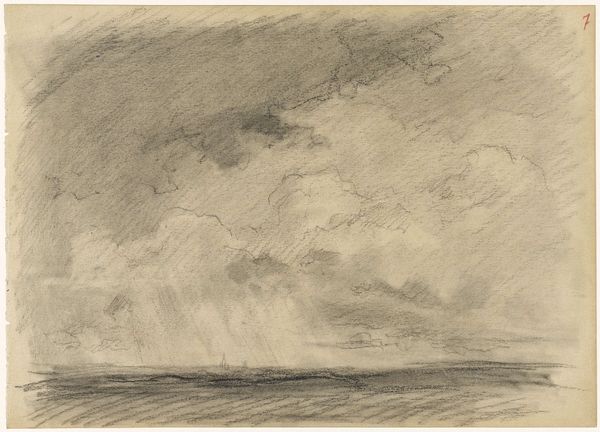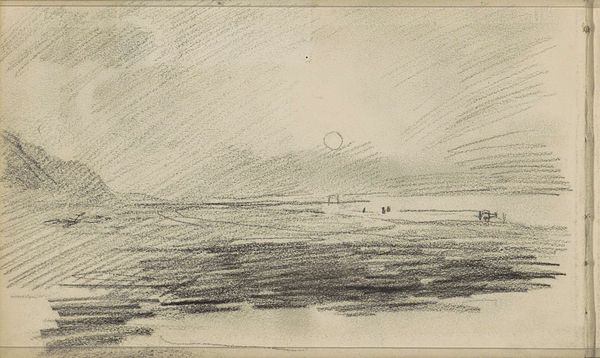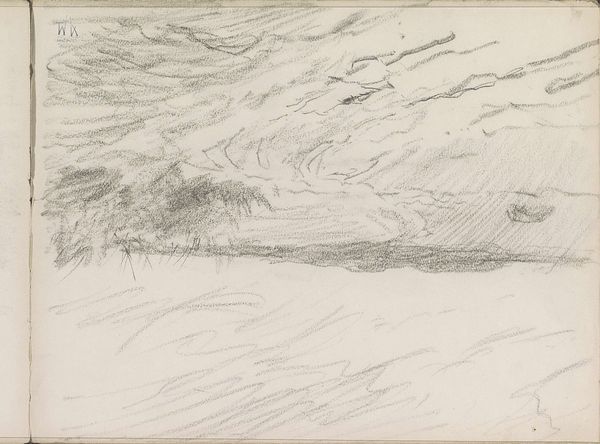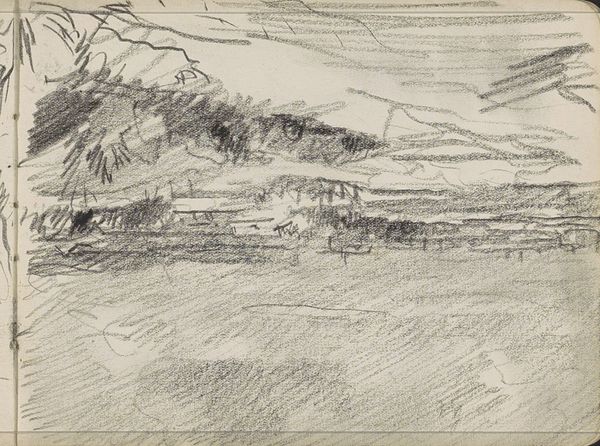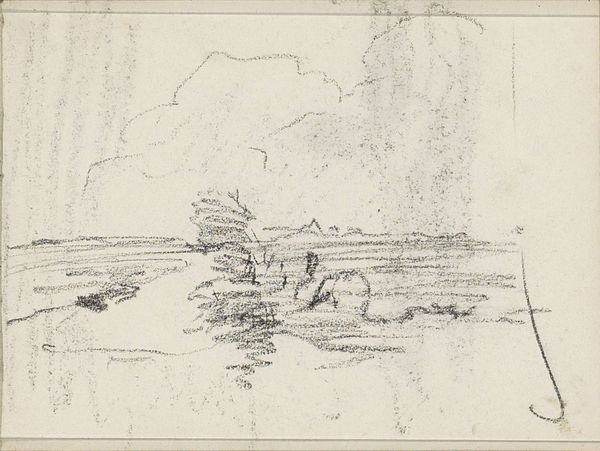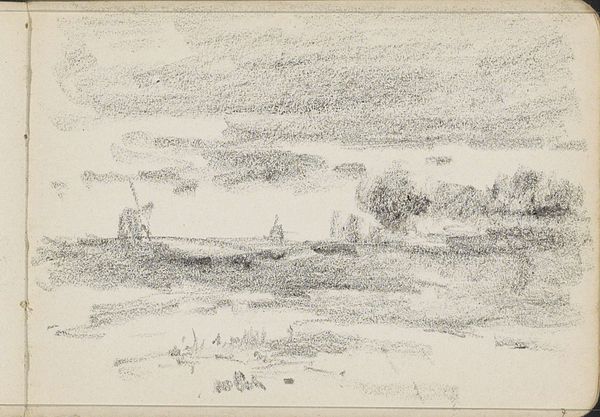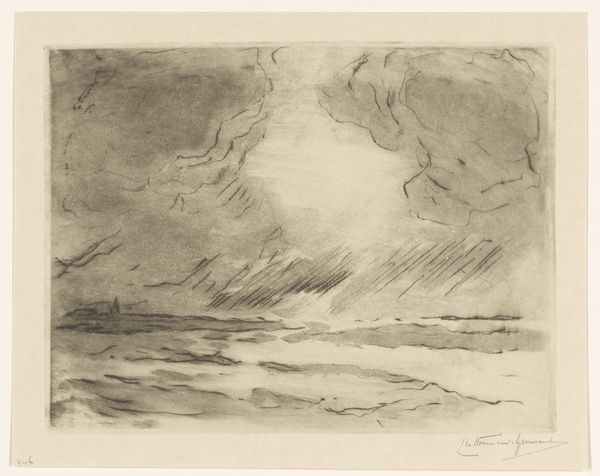
Copyright: Rijks Museum: Open Domain
Editor: This is "Landschap, mogelijk een zeegezicht," which translates to "Landscape, possibly a seascape," a pencil drawing by Johan Antonie de Jonge, dating roughly between 1901 and 1927. The subdued greyscale and hazy lines give it such a dreamlike quality. How do you interpret this work? Curator: The lack of specificity – the “possibly a seascape” in the title – is key here. Consider the late 19th and early 20th centuries: the rise of photography challenged painting's role in documenting reality. Artists increasingly turned inward, focusing on subjective experiences and emotional responses to the world. Does this drawing read as a straightforward representation of a place, or more of an evocation of a feeling or memory associated with a place? Editor: It feels more like a fleeting memory. The details are vague, and the shading seems to emphasize atmosphere over concrete forms. Curator: Exactly! This aligns with the broader cultural shift where art becomes less about mirroring external reality and more about expressing internal states. Think of the Impressionists, for instance, who captured ephemeral moments rather than static scenes. De Jonge, working later, might have been grappling with similar artistic questions within a changed social landscape. Do you see that this was perhaps rapidly created for private consideration? Editor: Yes, it definitely feels personal and immediate, not intended for public display. It being found in a sketchbook confirms this too. I hadn't really considered it within the historical context of photography's rise. Curator: Seeing art in relation to major shifts—the emergence of new technologies, social movements, and changing philosophical perspectives helps understand choices that artists make and, importantly, the reception it gains. The drawing functions not just as a landscape but also as an artifact reflecting broader societal concerns about representation and subjectivity. Editor: I learned a lot! This makes me want to examine art more through cultural shifts of the time. Thanks! Curator: Agreed. Always great when the artwork leads to insights about society itself!
Comments
No comments
Be the first to comment and join the conversation on the ultimate creative platform.
